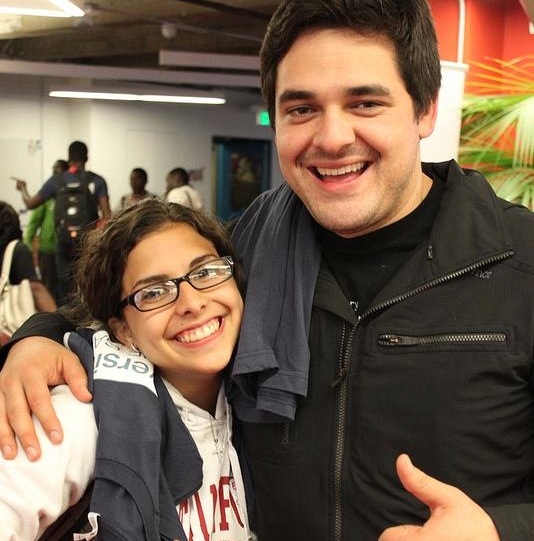The co-founder of CODE2040 on the power of mentors to accelerate the entry of underrepresented groups into the innovation economy.
By Laura Weidman Powers (Co-founder & Executive Director, CODE2040)
“You can’t be what you can’t see.”
I don’t tend to like trite expressions like that (although I do really love rhymes) but my experience founding and running CODE2040, a nonprofit fellows program for black and latino students interested in pursuing careers in technology, has taught me that there is a deep truth to this turn of phrase.
Often, this quip is used to explain to why it is so important for young impressionable minds to be exposed to people in positions of authority and influence who look like them or come from similar backgrounds. That is, public figures who can be “seen” en masse.
This is, without a doubt, critical — an increasing number of people from underrepresented backgrounds in visible positions of influence and authority is both a harbinger and a proof of progress and change.
But my experience with CODE2040 has shown me that, while the diversity of these larger than life figures is important, it’s not just images in the media, speakers at conferences, or professors in the classroom that impact students. One-on-one experiences students have with mentors can be just as powerful in showing them all the various things that they can “be.”
This summer, for the second class of the CODE2040 Fellows Program, we gathered 18 top technical students from around the country and brought them to the Bay Area for an intensive leadership development program. As a core part of the program, each of these students got two mentors they could chat with, reach out to, and rely on over the course of the summer.
Our students repeatedly cited the opportunity to pick the brains of their mentors and hear the ins and outs of their professional experiences as a pivotal experience in their summer – and in their conceptions of their future careers. Through interactions with their mentors, our students got inspired: someone they could identify with was succeeding in tech…which meant they could succeed, too.
The exciting thing about the fact that mentors — even those not much older than their mentees — can be powerful role models is that we don’t have to wait until more women and minorities ascend to positions of visible authority to start impacting today’s youth’s perceptions of their potential.
While we work on the former, we can tackle the latter. There are many ways for students to see what they can be.
http://www.youtube.com/watch?v=jXzNQi_cvX4


